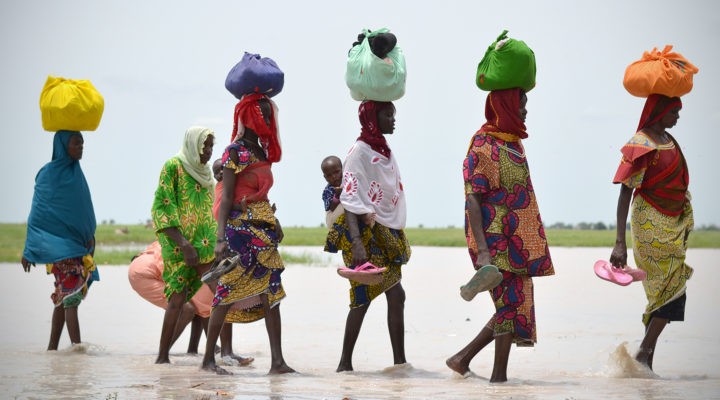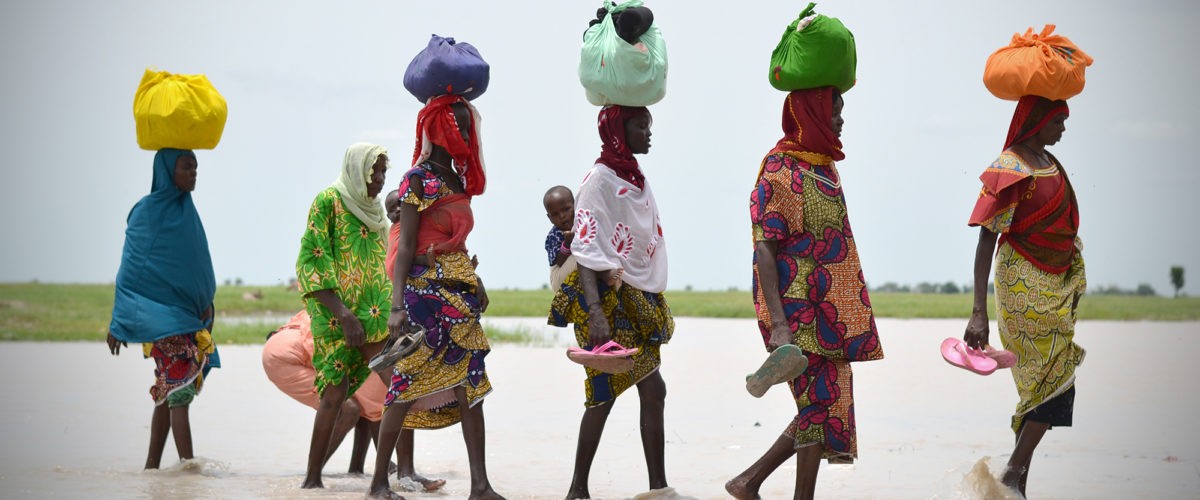On a continent long reeling from the effects of climate change, the 2021 World Humanitarian Day focused on the human cost of the climate crisis and the need for world leaders to take meaningful action for the world’s most vulnerable people. It was an opportunity for African leaders to recommit to tackling the threat.
And leading the charge was the African Union. H.E Mousa Faki, chairperson of the African Union Commission for World Humanitarian Day held on Aug. 19, called on member states to build their national resilience capacity and place climate change in their priority lists of national development agendas.
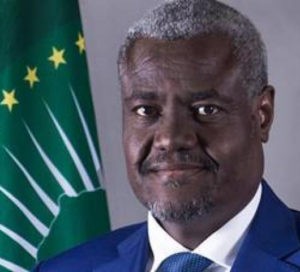
H.E Mousa Faki
“Africa has been affected greatly in recent time by El Niño-related droughts, floods, erratic rainfalls, desertification, and the attendant humanitarian disasters, including food insecurity, internal displacement of populations, and loss of livelihoods of farming communities,” Faki explained, adding that such existing challenges, combined with the effect of the COVID-19 global pandemic, have threatened the humanitarian landscape and grossly affected 27.5 million refugees, returnees and internally displaced persons in the continent, most of whom live in dire situations.
Among the African countries where internally displaced people and refugees are living today due to natural and man-made disasters are Nigeria, Chad, Niger, Cameroon, Democratic Republic of Congo, Ethiopia, Burkina Faso, Somalia, Uganda.
Faki, recognizing this fact, challenged African leaders to do better to improve or change their situation.
“Leaders must all take responsibility to eliminate the causes of climate change if we are to have any chance of meeting current and future humanitarian needs,” he declared. “If we fail, the consequences will be greater human suffering and larger humanitarian needs than we can ever hope to meet, no matter the responses.”
The African Union’s focus on climate change and the humanitarian sector was in line with the United Nations objective, which, through its office for the Coordination of Humanitarian Affairs launched the hashtag, #TheHumanRace as a way of showing solidarity with people across the world but mainly in disaster-prone countries badly hit by climate change.
Originally marked in memory of victims of the Aug. 19, 2003, bomb attack on the Canal Hotel in Baghdad that killed 22 people, including the U.N.’s chief humanitarian in Iraq, World Humanitarian Day was formalized by the United Nations General Assembly in 2009. Each year, organizers come up with a new theme to celebrate the day.
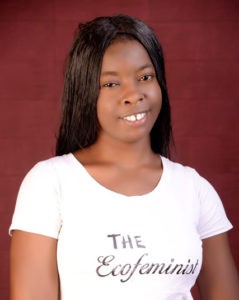
Adenike Oladosu
To put a face on this year’s campaign, which runs until Aug. 31, the U.N. got the support of some climate change activists, sports stars, the Red Cross movement and non-governmental organizations to help propagate its goals. Among them are Fernanda Maciel, a Brazilian athlete and environmental lawyer, and Adenike Oladosu, a Nigerian climate activist and founder of ILeadClimate.
Speaking on her motivation for the #TheHumanRace campaign, Maciel said: “I am excited to run for the most important goal in our lifetime: to save our planet and the people living on it. We run every day, for ourselves. Why not run for something bigger? Everybody should join this campaign because we need compassion. It is time to run together.”
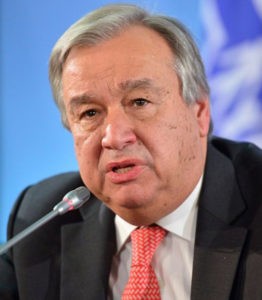
António Guterres (Photo: United Nations Mission for the Referendum in Western Sahara)
For his part, António Guterres, United Nations Secretary-General, said: “The climate emergency is a race we are losing, but it is a race we can win … let’s lace up our running shoes and win the climate race for us all.”
Asked what strategy or support, if any, exists between the U.N. and African leaders and activists in regard to galvanizing African leaders to tackle climate change, Belinda Gurd of the U.N., replied: “With most climate campaigns focused on slowing climate change and securing the planet’s future, World Humanitarian Day 2021’s campaign highlights the immediate consequences of the climate emergency for the world’s most vulnerable people and to ensure that their voices are heard and their needs top the agenda at the U.N. Climate Change Conference in November.”
That, of course, includes government and business leaders from the African continent, she said, adding, “We hope that leaders of governments and corporations alike will take notice and make the right choices. … By taking part in such large numbers around the world, including across Africa, their constituents — whether it’s their voters, taxpayers or consumers — have shown that they demand climate action, especially for vulnerable communities, right now.”
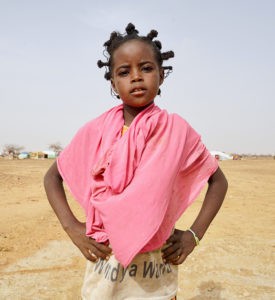
In Barsalogho, Northern Burkina Faso, a young girl at the Dori refugee camp. (©OCHA/Giles Clarke)
Beyond the campaigns, however, there are some Africans who wonder what difference annual events like Humanitarian Day — which are scarcely short of lofty goals and ideas — make in the life of the people. Some see it as nothing more than talk shops or jamborees that yield little, or, as Greta Thunberg, the young Swedish climate activist, once put it, “empty words.”
Oladosu believes African countries can achieve better results if the governments and climate experts can work together in unison and restrategize on the way forward. She called for more commitment from both parties to ensure that the threat posed by climate change is contained.
“The current levels of commitment are not enough in tackling the reality of the climate change crisis,” she declared, calling on transition to eco-friendly activities “that will have far and near reaching benefits.”
“African countries can take the lead on climate action if we all come together in one action and voice to end all business as usual. We bear the biggest burden of the climate change, (which) is colonizing our activities. Now we are left with no option than to adapt to it.”
Beyond that, Oladosu wants to see a clear and transparent system in place.
Anthony Akaeze is a Nigerian-born freelance journalist who currently lives in Houston. He covers Africa for BNG.
Related articles:
Christians and climate change: A chance to take the Bible seriously | Analysis by Chris Conley
Climate change is heating up the terrorist conflict in Africa’s Sahel region

